 W
WPolitical philosophy is the philosophical study of government, addressing questions about the nature, scope, and legitimacy of public agents and institutions and the relationships between them. Its topics include politics, liberty, justice, property, rights, law, and the enforcement of laws by authority: what they are, if they are needed, what makes a government legitimate, what rights and freedoms it should protect, what form it should take, what the law is, and what duties citizens owe to a legitimate government, if any, and when it may be legitimately overthrown, if ever.
 W
WBetween Past and Future is a book written by the German-born Jewish American political theorist, Hannah Arendt, and first published in 1961, dealing with eight topics in political thinking.
 W
WThe Broken Compass: How British Politics Lost its Way is the fourth book by British writer Peter Hitchens, published in May 2009. Polemical and partly autobiographical, the book contends that the British political right and left no longer hold firm, adversarial beliefs, but vie for position in the centre, while at the same time overseeing a general decline in British society.
 W
WThe idea of the Common Peace was one of the most influential concepts of 4th century BC Greek political thought, along with the idea of Panhellenism. The term described both the concept of a desirable, permanent peace between the Greek city-states (poleis) and a sort of peace treaty which fulfilled the three fundamental criteria of this concept: it had to include all the Greek city-states, it had to recognise the autonomy and equality of all city states without regard for their military power, and it had to be intended to remain in force permanently.
 W
WCounterintelligence state is a state where the state security service penetrates and permeates all societal institutions, including the military. The term has been applied by historians and political commentators to the former Soviet Union, the former German Democratic Republic, Cuba after the 1959 revolution, Iraq under Saddam Hussein, and post-Soviet Russia under Vladimir Putin, especially since 2012. Debate also exists whether the United States of America, following the global surveillance disclosures may also fall into the category.
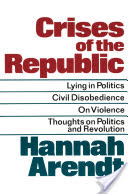 W
WCrises of the Republic is an anthology of four essays by Hannah Arendt, dealing with contemporary American politics and the crises it faced in the 1960s and 1970s, published in 1972.
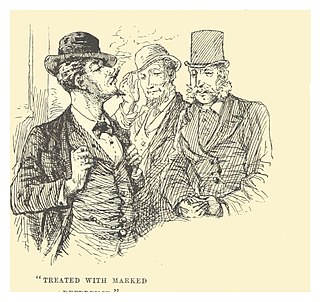 W
WDeference is the condition of submitting to the espoused, legitimate influence of one's superior or superiors. Deference implies a yielding or submitting to the judgment of a recognized superior, out of respect or reverence. Deference has been studied extensively by political scientists, sociologists, and psychologists.
 W
WDeliberation is a process of thoughtfully weighing options, usually prior to voting. Deliberation emphasizes the use of logic and reason as opposed to power-struggle, creativity, or dialogue. Group decisions are generally made after deliberation through a vote or consensus of those involved.
 W
WThe divine right of kings, divine right, or God's mandate is a political and religious doctrine of political legitimacy in a monarchy. It stems from a specific metaphysical framework in which a monarch is pre-ordained to inherit the crown before their birth. Under this theory of political legitimacy the subjects of the crown are considered to have actively turned over the metaphysical selection of the king's soul – which will inhabit the body and rule them – over to God. In this way, the "divine right" originates as a metaphysical act of humility or submission towards God. The divine right has been a key element for legitimizing many absolute monarchies.
 W
WEconomic freedom, or economic liberty, is the ability of people of a society to take economic actions. This is a term used in economic and policy debates as well as in the philosophy of economics. One approach to economic freedom comes from the liberal tradition emphasizing free markets, free trade, and private property under free enterprise. Another approach to economic freedom extends the welfare economics study of individual choice, with greater economic freedom coming from a larger set of possible choices. Other conceptions of economic freedom include freedom from want and the freedom to engage in collective bargaining.
 W
WAn emperor is a monarch, and usually the sovereign ruler of an empire or another type of imperial realm. Empress, the female equivalent, may indicate an emperor's wife, mother, or a woman who rules in her own right. Emperors are generally recognized to be of the highest monarchic honour and rank, surpassing kings. In Europe, the title of Emperor has been used since the Middle Ages, considered in those times equal or almost equal in dignity to that of Pope due to the latter's position as visible head of the Church and spiritual leader of the Catholic part of Western Europe. The Emperor of Japan is the only currently reigning monarch whose title is translated into English as "Emperor", while holding no actual political power.
 W
WEquity of condition in tax law and governmental spending is the economic condition, often arbitrary, that political leaders believe a person should be in after governmental social engineering and redistribution of wealth. The award or redistribution of wealth to the recipients overrides, substantially, any natural right of the producers of the wealth to keep the fruits of their labor.
 W
W"Everything which is not forbidden is allowed" is a constitutional principle. It is the concept that any action can be taken by an individual or a body unless there is a law against it. It is also known in some situations as the "general power of competence" whereby the body or person being regulated is acknowledged to have competent judgement of their scope of action. The opposite is a principle whereby an action can only be taken if it is specifically allowed. The general power of competence operates in most states and societies as it is much easier to specify what cannot be done, than what can be done.
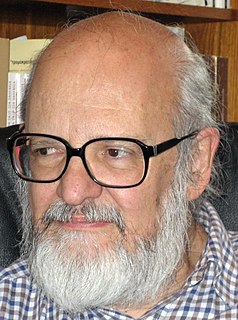 W
WTakis Fotopoulos is a Greek political philosopher economist and writer who founded the Inclusive Democracy movement, aiming at a synthesis of classical democracy with libertarian socialism and the radical currents in the new social movements. He is an academic, and has written many books and over 900 articles,. He is the editor of The International Journal of Inclusive Democracy and is the author of Towards An Inclusive Democracy (1997) in which the foundations of the Inclusive Democracy project were set. His latest book is The New World Order in Action: Volume 1: Globalization, the Brexit Revolution and the "Left"- Towards a Democratic Community of Sovereign Nations. Fotopoulos is Greek and lives in London.
 W
WThe Frankfurt School was a school of social theory and critical philosophy associated with the Institute for Social Research, at Goethe University Frankfurt. Founded in the Weimar Republic (1918–33), during the European interwar period (1918–39), the Frankfurt School comprised intellectuals, academics, and political dissidents dissatisfied with the contemporary socio-economic systems of the 1930s. The Frankfurt theorists proposed that social theory was inadequate for explaining the turbulent political factionalism and reactionary politics occurring in 20th century liberal capitalist societies. Critical of capitalism and of Marxism–Leninism as philosophically inflexible systems of social organization, the School's critical theory research indicated alternative paths to realizing the social development of a society and a nation.
 W
WThe Führerprinzip prescribed the fundamental basis of political authority in the Government of Nazi Germany. This principle can be most succinctly understood to mean that "the Führer's word is above all written law" and that governmental policies, decisions, and offices ought to work toward the realization of this end. In actual political usage, it refers mainly to the practice of dictatorship within the ranks of a political party itself, and as such, it has become an earmark of political fascism.
 W
WIn political philosophy, the general will is the will of the people as a whole. The term was made famous by 18th-century Genevan philosopher Jean-Jacques Rousseau.
 W
WGlobal justice is an issue in political philosophy arising from the concern about unfairness. It is sometimes understood as a form of internationalism.
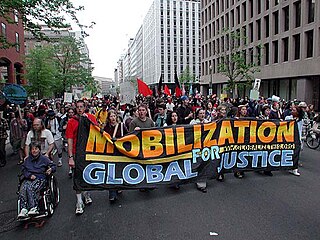 W
WThe global justice movement is a network of globalized social movements demanding global justice by opposing what is often known as the “corporate globalization” and promoting equal distribution of economic resources.
 W
WThe Hebrew Republic, also “De Republica Hebraeorum”, and also “Respublica Hebraeorum”, is an early modern concept in political theory in which Christian scholars regarded the Hebrew Bible as a political constitution framing a perfect and republican government designed by God for the children of Israel.
 W
WLimitarianism refers to several different types of ethical theories. Though Limitarianism applies differently to varied fields of study, what is always common is an examination of when it is proper, moral or ethical to interfere and intervene in the lives and freedoms of individuals, in order to benefit society as a whole. It sometimes presents as a principle of distributive justice in economic theories. Unlike encompassing systems of political and economic intervention, which seek to make dramatic changes to the social order, Limitarianism deals with specific instances and subjects, for which the necessity and justification of intervention may be examined. As its name implies, Limitarianism asks the question of how setting certain limits for human beings can lead to positive outcomes.
 W
WManagerialism, involves belief in the value of professional managers and of the concepts and methods they use. Contemporary writers on management such as Thomas Diefenbach associate managerialism with hierarchy. But scholars have also linked managerialism to control, to accountability and measurement, and to an ideologically determined belief in the importance of tightly-managed organizations, as opposed to individuals or to groups that do not resemble an organization.
 W
WThe master–slave dialectic is the common name for a famous passage of Georg Wilhelm Friedrich Hegel's Phenomenology of Spirit, though the original German phrase, Herrschaft und Knechtschaft, is more properly translated as Lordship and Bondage. It is widely considered a key element in Hegel's philosophical system, and has heavily influenced many subsequent philosophers.
 W
WOn Revolution is a 1963 book by political theorist Hannah Arendt. Arendt presents a comparison of two of the main revolutions of the eighteenth century, the American and French Revolutions.
 W
WIn phenomenology, the terms the Other and the Constitutive Other identify the other human being, in their differences from the Self, as being a cumulative, constituting factor in the self-image of a person; as acknowledgement of being real; hence, the Other is dissimilar to and the opposite of the Self, of Us, and of the Same. The Constitutive Other is the relation between the personality and the person (body) of a human being; the relation of essential and superficial characteristics of personal identity that corresponds to the relationship between opposite, but correlative, characteristics of the Self, because the difference is inner-difference, within the Self.
 W
WOtium, a Latin abstract term, has a variety of meanings, including leisure time in which a person can enjoy eating, playing, resting, contemplation and academic endeavors. It sometimes, but not always, relates to a time in a person's retirement after previous service to the public or private sector, opposing "active public life". Otium can be a temporary time of leisure, that is sporadic. It can have intellectual, virtuous or immoral implications. It originally had the idea of withdrawing from one's daily business or affairs to engage in activities that were considered to be artistically valuable or enlightening. It had particular meaning to businessmen, diplomats, philosophers and poets.
 W
WPirate utopias were defined by anarchist writer Peter Lamborn Wilson, who coined the term in his 1995 book Pirate Utopias: Moorish Corsairs & European Renegadoes as secret islands once used for supply purposes by pirates. Wilson's concept is largely based on speculation, although he admits to adding a bit of fantasy to the idea. In Wilson's view, these pirate enclaves were early forms of autonomous proto-anarchist societies in that they operated beyond the reach of governments and embraced unrestricted freedom.
 W
WIn political philosophy and ethics, political authority describes any of the moral principles legitimizing differences between individuals' rights and duties by virtue of their relationship with the state. Political authority grants members of a government the right to rule over citizens using coercion if necessary, while imposing an obligation for the citizens to obey government orders.
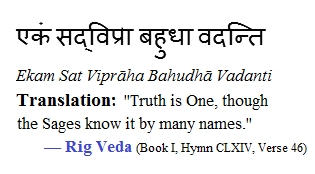 W
WPrincipled Distance is a new model of secularism given by Rajeev Bhargava. the separation of government institutions and persons mandated to represent the state from religious institutions and religious dignitaries. He says that Indian secularism did not erect a strict wall of separation, but proposed a 'principled distance' between religion and state. Moreover, by balancing the claims of individuals and religious communities, it never intended a bludgeoning privatization of religion. In India, secularism means equal treatment of all religions. Religion in India continues to assert its political authority in matters of personal law. The western model of secularism is criticized in India for being an outdated concept as Rajeev argued that since Western model was developed when society was more homogeneous but since in the era of globalization, society is becoming more heterogeneous therefore a new concept, suitable for the present situation, is needed. He even argued that since Europe itself is no more homogeneous hence West should also follow the principled distance model which on one hand respects the diversity and at the same time empowers the state to interfere in case of any discrimination in the name of religion.
 W
WRational economic exchange also called goods exchange economy is an economic transaction where goods or services are transferred from the provider for a return of relative value (compensation) from the receiver in a manner that advances the economic interests of both parties. Rational economic exchange is implied in voluntary economic transactions between private parties where it is assumed that an economic transaction would not occur unless both parties believed they would be better off after the trade. Rational economic exchange can be implied in governmental taxation and spending where the agents of the citizen—government legislators and administrators—implement fiscal policy where tax assessment to the citizen is related, substantially, to an implied level of government service.
 W
WRedistribution of income and wealth is the transfer of income and wealth from some individuals to others by means of a social mechanism such as taxation, charity, welfare, public services, land reform, monetary policies, confiscation, divorce or tort law. The term typically refers to redistribution on an economy-wide basis rather than between selected individuals.
 W
WIn medieval and early modern Western political thought, the respublica or res publica Christiana refers to the international community of Christian peoples and states. As a Latin phrase, res publica Christiana combines Christianity with the originally Roman idea of the res publica to describe this community and its well-being. A single English word with somewhat comparable meaning is Christendom; it is also translated as "the Christian Commonwealth".
 W
WThe right to the city is an idea and a slogan that was first proposed by Henri Lefebvre in his 1968 book Le Droit à la ville and that has been reclaimed more recently by social movements, thinkers and several progressive local authorities alike as a call to action to reclaim the city as a co-created space—a place for life detached from the growing effects that commodification and capitalism have had over social interaction and the rise of spatial inequalities in worldwide cities throughout the last two centuries.
 W
WSocialist self-management or Self-governing socialism was a form of workers' self-management used as a social and economic model formulated by the Communist Party of Yugoslavia. It was instituted by law in 1950 and lasted in the Socialist Federal Republic of Yugoslavia until 1990, just prior to its breakup in 1992.
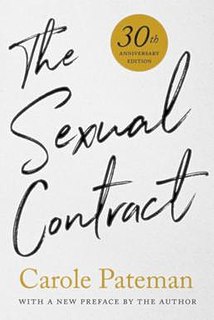 W
WThe Sexual Contract is a 1988 non-fiction book by British feminist and political theorist Carole Pateman which was published through Polity Press. This book is a seminal work which discusses how contract theory continues to affirm the patriarchy through methods of contractual submission where there is ultimately a power imbalance from systemic sexism. The focus of The Sexual Contract is on the false narrative that there is a post-patriarchal or anti-patriarchal society that presently exists as a result of the conception of a civil society, instead Pateman argues that civil society continues to aid feminine oppression and that the orthodoxy of contracts such as marriage cannot become equitable to both women and men. Pateman uses a feminist lens when rationalising the argument proposed in The Sexual Contract through the use of works by classic political and liberal philosophers Thomas Hobbes, John Locke, Jean-Jacques Rousseau and later interpreted by the Founding Fathers whom Pateman has before critiqued for on how modern rights, freedoms are derived from archaic standards of contract that are deeply embedded within Western Spheres particularly America, England and Australia which are the focus areas for her work.
 W
WSocial exclusion or social marginalisation is the social disadvantage and relegation to the fringe of society. It is a term used widely in Europe and was first used in France. It is used across disciplines including education, sociology, psychology, politics and economics.
 W
WSynoecism or synecism, also spelled synoikism, was originally the amalgamation of villages in Ancient Greece into poleis, or city-states. Etymologically the word means "dwelling together (syn) in the same house (oikos)." Subsequently, any act of civic union between polities of any size was described by the word synoikismos. The closest analogy today is the incorporation of a city; in fact, "incorporation" is often used to translate synoikismos, in addition to the Latinized synoecism. Synoecism is opposed to Greek dioecism, the creation of independent communities within the territory of a polis.
 W
WTacitean studies, centred on the work of Tacitus the Ancient Roman historian, constitute an area of scholarship extending beyond the field of history. The work has traditionally been read for its moral instruction, its narrative, and its inimitable prose style; Tacitus has been most influential as a political theorist, outside the field of history. The political lessons taken from his work fall roughly into two camps : the "red Tacitists", who used him to support republican ideals, and the "black Tacitists", those who read his accounts as a lesson in Machiavellian realpolitik.
 W
WTotalitarianism is a concept for a form of government or political system that prohibits opposition parties, restricts individual opposition to the state and its claims, and exercises an extremely high degree of control over public and private life. It is regarded as the most extreme and complete form of authoritarianism. In totalitarian states, political power has often been held by autocrats who employ all-encompassing campaigns in which propaganda is broadcast by state-controlled mass media.
 W
WTractatus politicus (TP) or Political Treatise is a political paper by Baruch Spinoza written in 1675–76 and published posthumously in 1677. This paper has the subtitle, "In quo demonstratur, quomodo Societas, ubi Imperium Monarchicum locum habet, sicut et ea, ubi Optimi imperant, debet institui, ne in Tyrannidem labatur, et ut Pax, Libertasque civium inviolata maneat.".
 W
WWildness, in its literal sense, is the quality of being wild or untamed. Beyond this, it has been defined as a quality produced in nature, as that which emerges from a forest, and as a level of achievement in nature. More recently, it has been defined as "a quality of interactive processing between organism and nature where the realities of base natures are met, allowing the construction of durable systems". A wilderness is a place where wildness occurs.
 W
WYouth exclusion is a form of social exclusion in which youth are at a social disadvantage in joining institutions and organizations in their societies. Troubled economies, lack of governmental programs, and barriers to education are examples of dysfunctions within social institutions that contribute to youth exclusion by making it more difficult for youth to transition into adulthood. European governments have recently recognized these shortcomings in societies organizational structures and have begun to re-examine policies regarding social exclusion. Many policies dealing with social exclusion are targeted at youth since this demographic of people face a transition into adulthood; defining career and lifestyle choices that will affect the future culture and structure of a society.